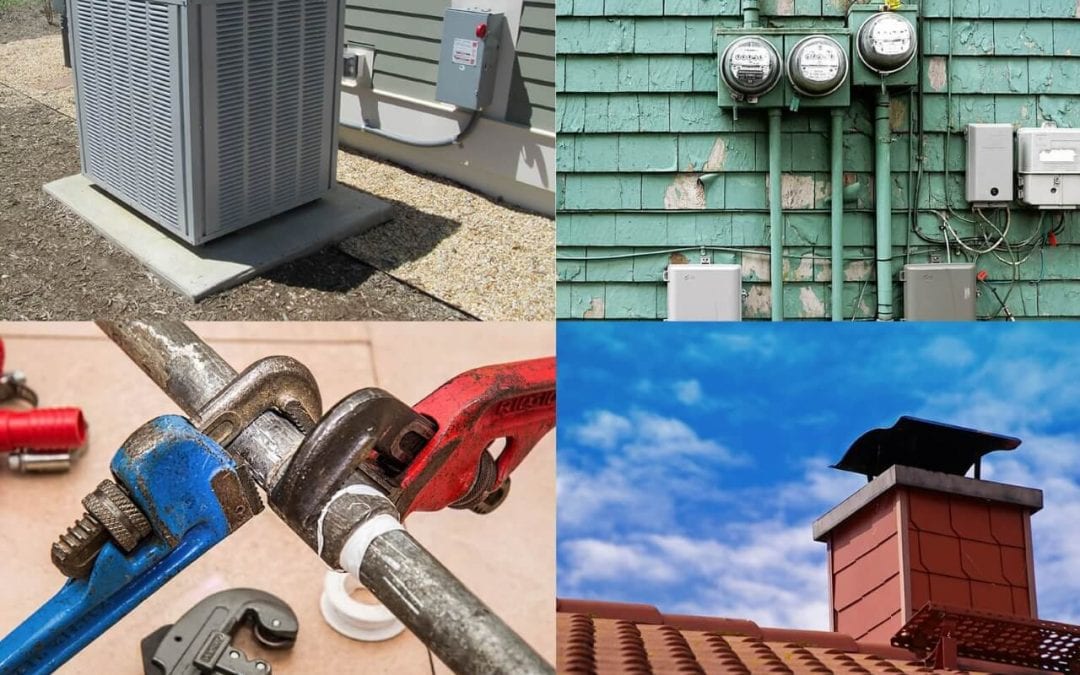Why do I Need a 4-Point Home Inspection?
An older home can be a great investment. In some areas, your homeowners insurance may require a 4-point inspection before finalizing your policy. Older homes often have aging components that make them an insurance risk. Ask your inspector to perform a 4-point home inspection of the property you are buying.
The Fundamentals of a 4-Point Home Inspection
During a 4-point inspection, the four major components of the house are assessed. This includes the roofing, HVAC system, electrical system, and plumbing. Requirements may vary according to the insurance company’s needs and the property’s location. However, it’s important to understand that these factors affect your home’s insurability.
Look for Roofing Problems
A failing roof can cause a host of problems in a home. Moisture intrusion will eventually cause mold growth and structural damage. During the 4-point inspection, the inspector will assess the condition of the roofing and determine its expected lifespan. The insurance underwriter will want to confirm that the roof is in good condition and isn’t likely to fail and lead to insurance claims.
Electrical System
A 4-point inspection checks the safety of the electrical system. Especially in older homes, the electrical system can malfunction, leading to injury or a house fire. An outdated system with older, aluminum wiring may not be covered by some insurance companies.
Aluminum wiring expands and contracts more than copper wiring and because of this, it may work itself loose from connections. Your inspector will document the wiring materials when examining the system during the inspection.
The Plumbing is Assessed During a 4-Point Home Inspection
An insurance company wants to make sure the house it is covering is low risk. Some types of plumbing pipes are more likely to rupture. Polybutylene pipes were used in plumbing systems until the mid-1990s. Over time, this type of plastic will deteriorate and can lead to flooding and water damage. A 4-point inspection includes an examination of the plumbing system for this reason.
HVAC System
In some areas, an insurance company will not provide coverage to homes without central heating or air conditioning. The inspector will examine the existing heating and cooling and report on the type and age of the HVAC system in a home.
What if a House has Problems?
If the 4-point home inspection finds issues, you might ask the seller to make repairs or updates to the property before closing. For example, if an electrical circuit is overloaded, you might negotiate with the seller to fix the issue before closing.
Occasionally, an insurance company will grant a grace period of 30 days to complete repairs. You may be required to order a second inspection to show that any problems have been fixed within the time allowed.
When purchasing a home, a professional inspector will help identify issues with the property. He or she can complete the 4-point inspection as required by your insurance company. You’ll better understand the condition of the house and can plan for repairs with the information provided by the home inspector.
GoPro Home Inspections offers inspections, including 4-point home inspections, to customers in Central Florida. Contact us to request our services.

